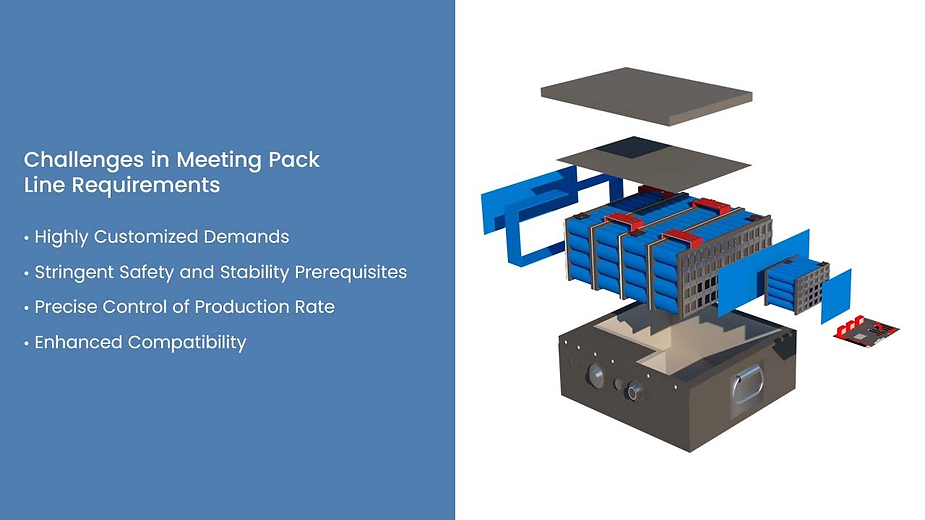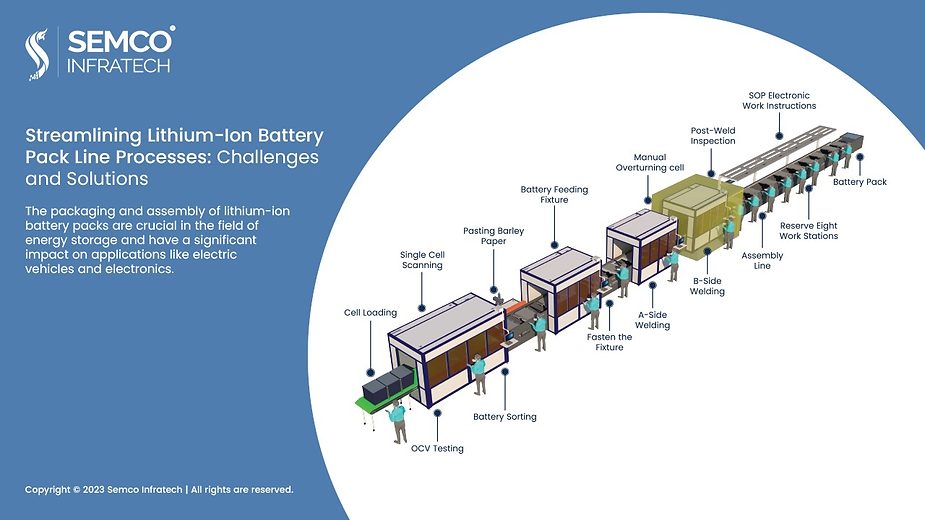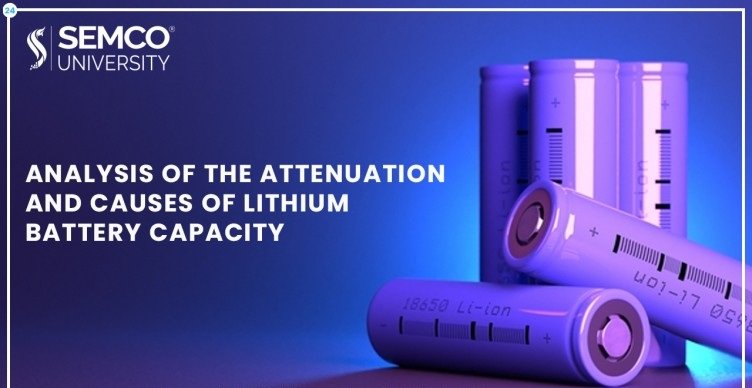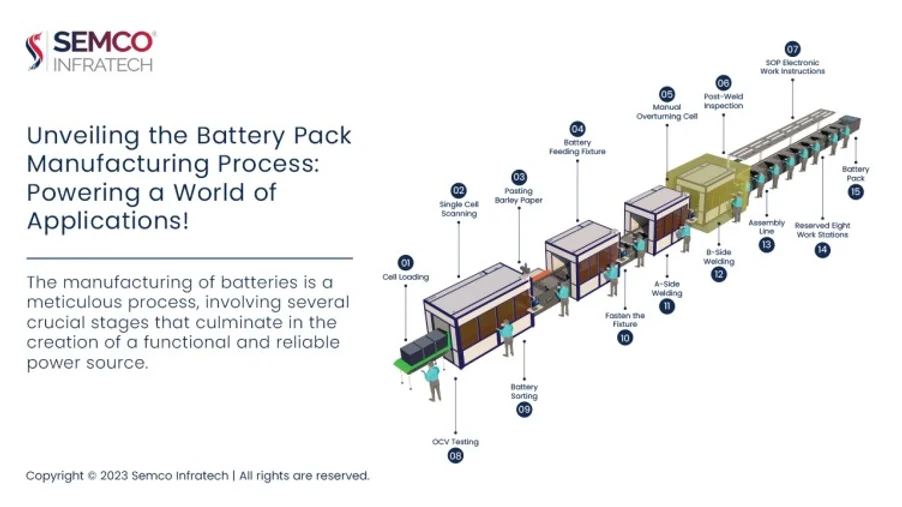The packaging and assembly of lithium-ion battery packs are crucial in the field of energy storage and have a significant impact on applications like electric vehicles and electronics.
The pack line process consists of three main phases: production, assembly, and packaging.
The pack is a complex system comprising battery packs, shunts, soft connections, protective boards, outer packaging, output components (such as connectors), insulating materials like barley paper, plastic brackets, and other auxiliary materials. These components come together to form a complete pack unit. This blog discusses the challenges faced in the Lithium-Ion Battery Pack Line Processes and offers potential solutions.
The Core Functions of a Pack Line
A typical production line for battery packs serves two main purposes: transmission and testing. In the industry, it is common to use semi-automatic assembly lines for pack production. These lines handle tasks such as launching, offline operations, testing, in-plant transmission, and packaging. The processes involved in a lithium battery pack production line are relatively simple, including feeding, attaching brackets, welding, and conducting thorough testing, among other steps.
Challenges in Meeting Pack Line Requirements
- Highly Customized Demands: The power battery system pack requires targeted research and development tailored to the specific requirements of vehicle manufacturers. Each automaker has unique specifications and needs, leading to a high degree of customization in the assembly process. These drive increased demand for automated production lines that can efficiently adapt to these variations.

- Stringent Safety and Stability Prerequisites: The core challenge in creating a power battery system pack lies in accommodating the customized market demands of different vehicle models. This customization process addresses various aspects, including BMS design, thermal management, space constraints, structural strength, system interfaces, IP ratings, and safety measures. These custom requirements are vital for ensuring the safety and stability of the battery pack.
- Precise Control of Production Rate: Modern battery pack production requires a different approach to maintain a high and efficient production rate while meeting market supply and demand. This involves refining the process to manage the “whole line beat,” focusing on average workstation working time rather than a sequential production line.
- Enhanced Compatibility: The evolving lithium battery industry adds complexity to the production process. With non-standardized modules, incoming cells, shells, PCB boards, and connecting components, compatibility across the production line becomes crucial. Adapting to these changes and ensuring efficiency and compatibility is vital.
- Embracing Automation and Innovation: In response to the growing lithium power industry, leaders are expanding production capacity, optimizing pack line processes, and incorporating smart technologies. This includes integrating intelligent equipment, robotic arms, collaborative robots, mobile robots, and other advanced technologies to improve efficiency.
The lithium battery manufacturing process requires highly reliable, stable, and precise equipment for process control. It also demands intelligent data processing capabilities for effective production data management. This drives the need for automation and intelligent upgrades to meet the evolving demands of the industry.
As the energy storage landscape evolves, automating and enhancing pack line processes is crucial to ensure reliable, stable, and precise equipment. This streamlines production for the intelligent and data-driven future of lithium-ion battery manufacturing.





